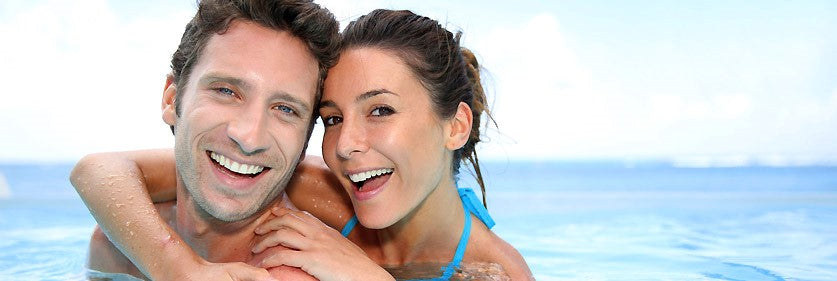Algae in the pool are a common problem that many pool owners experience. Despite significant investments in pool facilities and accessories, floating, filamentous, and blue algae can occur. These are not only unsightly but also significantly affect water quality. Algae can increase the pH level of the pool water, which can lead to corrosion of pumps and pipes. However, there are effective solutions to counteract this algae infestation.
Causes of algae growth in the pool
Algae growth in the pool can be favored by various factors. One of the main reasons is insufficient pool maintenance, especially inadequate filtration and disinfection. High temperatures and sunlight also promote algae growth, as algae are photosynthetically active. An uneven or too high pH level can also encourage algae formation, as well as the presence of nutrients in the water, which are introduced by leaves, pollen, or fertilizers.
Basics of pool maintenance
Regular and thorough pool maintenance is crucial to prevent algae in the pool. This includes regularly checking and adjusting the pH level, cleaning the filters, and removing dirt and leaves from the water. Good water circulation is also important to evenly distribute nutrients and avoid stagnant areas where algae can thrive. Mechanical pool cleaners can assist in keeping the pool floor and walls clean.
Disinfection with chemicals: Advantages and disadvantages
For clear pool water, the use of disinfectants is often required. Chemical methods, especially chlorination, are widespread. Chlorine disinfects the water by killing microorganisms, including algae. However, chlorine can increase the pH level, which in turn necessitates the use of pH reducers. This chemical balance must be carefully monitored to avoid skin and eye irritation.
Flocculants are often used in conjunction with chlorine to bind and remove the finest suspended particles. However, these chemicals also have disadvantages: they can make the water aggressive and require careful handling. Additionally, they are environmentally harmful, as the water must be disposed of as hazardous waste after treatment and cannot be used for irrigation.
UV-C disinfection: An environmentally friendly alternative
An environmentally friendly alternative to chemical disinfection is the treatment of pool water with UV-C light. This physical method uses a UV-C system installed between the filter and the pool's water circulation. The UV-C light destroys the DNA of the algae cells, rendering them inactive and unable to reproduce.
Advantages of UV-C disinfection:
- No chemical residue: The water remains free of chemical residues that are potentially harmful to humans and the environment.
- Lower operating costs: UV-C systems are expensive to purchase, but incur lower long-term costs as no chemical post-treatments are necessary.
- Safe for humans and animals: UV-C light is harmless to humans, plants, and animals because it only works within the closed system of the water cycle.
Long-term Algae Prevention: Tips and Tricks
To permanently prevent algae in the pool, a combination of preventive measures and regular maintenance is necessary. Here are some proven tips:
- Regular Water Analysis: Check the pH level and alkalinity of the water weekly. A pH level between 7.2 and 7.6 is ideal to inhibit algae growth.
- Good Water Circulation: Ensure that your pool pump is working efficiently and that the entire water volume is regularly circulated. Avoid dead spots in the pool where water could stagnate.
- Use of Algaecides: During periods of increased risk of algae growth, such as hot summer months, the preventive use of algaecides can be helpful. These special chemicals prevent algae growth but must be dosed according to the manufacturer's instructions.
- Cleaning Pool Accessories: Ladders, covers, and toys can also carry algae spores. Clean them regularly to prevent spreading.
The Dream of a Crystal Clear Pool: Achievable and Sustainable
Every pool owner dreams of a crystal clear, algae-free pool that is a visual highlight in the garden and invites you to swim. With the right combination of physical and chemical methods, careful maintenance, and the use of environmentally friendly disinfection technologies like UV-C light, this dream can become a reality.
Conclusion: Clean Water Through Sustainable Maintenance
Algae in the pool is an avoidable problem if the right care and maintenance are practiced. By combining modern technology and proven methods, water quality can be sustainably improved. UV-C disinfection offers an environmentally friendly and safe alternative to chemical disinfection methods and helps keep the pool clear and algae-free. This way, you can enjoy the summer in a crystal clear pool without worrying about algae growth and water quality.
 Telefon: +49 3641 327 9697
Telefon: +49 3641 327 9697
 Offizieller Purion Händler
Offizieller Purion Händler
 Europaweite Lieferung
Europaweite Lieferung


